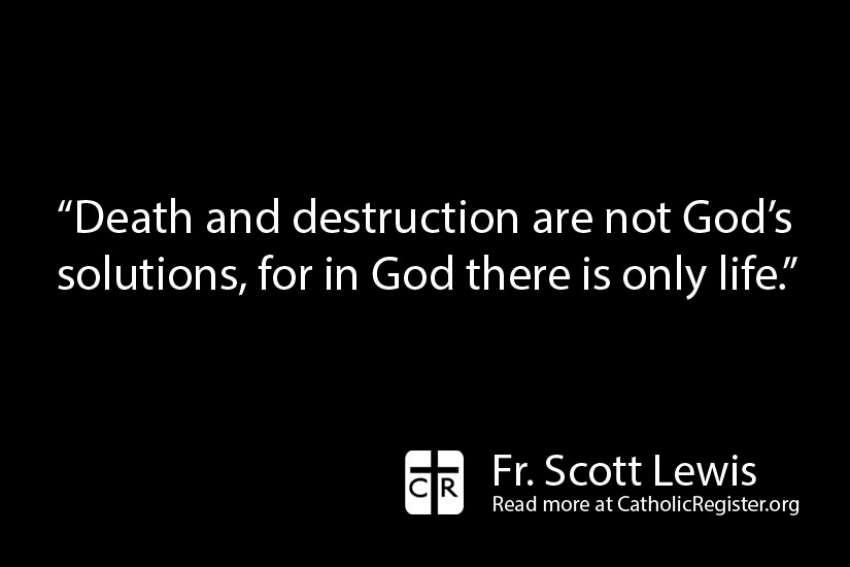The same dynamic is at work in much of the Bible’s apocalyptic literature. Seeing rampant evil and injustice in society takes its toll on people. There is a limit to the amount of anger, cynicism and outrage that one can bear.
Malachi vents much of that frustration and anger in his prophetic utterance. The day will come, he insists, when all the wicked will be burnt up like stubble. Only those who revere the Lord and walk in His ways will be saved.
This bit of prophecy was undoubtedly very effective in exhorting people to clean up their act and get right with God. We could ask if the picture is ever so simple. It is very difficult, if not impossible, to divide the world into the sheep and the goats, the evil and the good. Most people are a mixture of both.
The greatest saint also has a degree of personal darkness, while many we would label as bad people can also display moments of goodness and generosity. In addition to that, Jesus declared that God blesses both the good and the wicked, the grateful and ungrateful.
To be sure, negative choices and actions rebound on us, and there is a price to pay for walking in ways contrary to God. Sometimes only the pain and struggle of our collapsing personal world brings us to our senses.
Despite the ghoulish glee with which some religious folks embrace violent end-time prophecies, God does not come to burn up anyone, and we dishonour God by thinking so.
Death and destruction are not God’s solutions, for in God there is only life. The language and imagery of violence and fear have no place in the proclamation of the Gospel. People need to be convinced of the unconditional love that God has for them.
Stepping into the river of this divine love will enable us to find both ourselves and God in others. No one is utterly beyond hope of redemption, and our hearts should always reach out to those who need it most.
The community in Thessalonica had a motivation problem. Expecting the imminent return of Jesus, many had just ceased to work or do much of anything. It was far easier to kick back and wait for the Lord.
The letter was adamant: those who do not work do not eat. This passage should not be used to construct social and economic policy for society at large, for it applied to the tiny Christian community.
The main point was that we all owe our best efforts to the common good and service to others. We cannot take God’s grace for granted and shirk our responsibilities to others.
The apostles were dazzled by the physical manifestations of religious faith, in this instance Jerusalem’s spectacular temple. Jesus warned against identifying with it — the entire temple would be destroyed and swept away.
When the stunned apostles asked when this was going to happen, Jesus described a long run-up in the form of wars, earthquakes, famines, turmoil and chaos of all kinds. It reads like a description of our own time — in fact, of almost any time. He made the point that things will get a lot worse, so there was no reason for short-term optimism. There was no quick fix, and no free pass to evade suffering.
There were a few important bits of advice that Jesus gave to His followers then, and they apply to us now.
First, do not fear any of the fearsome events taking place. Second, be careful and discerning — there will be many charlatans and false religious claims made on all sides, as we have all seen. Keep our mind and heart focused and discerning.
Finally, let patient endurance be our guiding principle and way of life. This will see us through to the end. Don’t give up, don’t run, don’t lose hope, for these are deadly. Cling to the Lord, not institutions, ideologies or structures.
God is our rock and Jesus our lifeline — if we remain firmly anchored in both, no ultimate harm can come to us.


